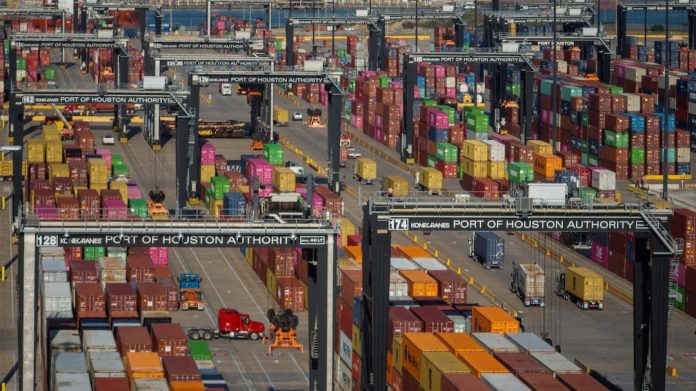China will increase tariffs on all imports from the US by 50 percentage points, from 34% to 84%, Chinese media reported on Wednesday. The tariff will be adjusted on April 10 from 12:01 a.m. local time.
Beijing’s retaliatory strike
Chinese authorities have added six US firms to the list of untrustworthy organisations and 12 US entities to the list of legal entities subject to export controls.
Earlier, US President Donald Trump, having received no signals of concessions from Beijing, signed an executive order to increase tariffs on goods from China. According to the executive order, the additional 34 per cent tariffs previously announced by Trump are being changed to 84 per cent. Thus, taking into account the 20% tariffs that Trump imposed on goods from China in the first term of his presidency, the tariffs are now 104%.
On April 2, US President Donald Trump introduced a new system of import tariffs for 185 countries. The base rate was 10% on all imported goods, but for individual countries it was much higher – 34% for China, 46% for Vietnam and 20% for the European Union. In response, China also imposed 34% tariffs on US goods. Leaders of countries around the world condemned Trump’s decision, threatening retaliatory measures.
Later, the US stock market collapsed to the level of the beginning of the coronavirus pandemic. Trump’s tariffs also brought down shares of defence companies in Europe. According to Bloomberg, the richest people in the world lost $208bn after the introduction of US tariffs.
CNBC reported that the US was willing to reconsider its stance on raising tariffs on Chinese goods if China refused to retaliate with tariffs on US goods. However, Beijing said that it was not going to make concessions.
China’s retaliatory tariffs is a mistake, US Treasury Department chief says
China’s retaliatory tariffs on US ones will not be effective because of the trade imbalance between the two countries, US Treasury Department chief Scott Bessent told CNBC on Tuesday.
The minister said: “I think it was a big mistake, this Chinese escalation, because they’re playing with a pair of twos. What do we lose by the Chinese raising tariffs on us? We export one-fifth to them of what they export to us, so that is a losing hand for them.”
Bessent assured that the purpose of the tariffs is to put US trading partners at the negotiating table, to bring jobs back to the US. According to him, about 70 countries have expressed their willingness to start a dialogue on trade issues. He also expressed confidence that some major countries, towards which the US has a large trade deficit, would soon want to talk to the US.
“If they show up to the talks with solid proposals, I think we can make good agreements,” Bessent said.
Earlier, the EU offered Trump a mutual zeroing of tariffs, but the US president rejected such an initiative, pointing out that Europe must first pay hundreds of billions of dollars. After that, Brussels prepared retaliatory measures that should hit the states where the Republican electorate resides particularly hard.
In addition, a number of EU countries proposed to reduce the bloc’s dependence on American liquefied natural gas (LNG) by switching to the purchase of energy resources from other suppliers. Against this backdrop, the EU and China held talks on responding to Trump’s tariff activity and improving bilateral trade relations.
Consequences of tariff war
Donald Trump’s tariff wars have had a bombshell effect in the world: some are predicting another global crisis, others are counting losses, and still others are looking for new opportunities. One thing is clear – even if the tariffs are cancelled, global trade will not be the same.
Since the announcement of the tariffs, the markets have been losing 5-10% per day, which is comparable to the crash of 2008. Asian indices – Nikkei 225, Hang Seng, Shanghai Composite, as well as American S&P 500, Dow Jones and Nasdaq – have been particularly hard hit. The fall in Hong Kong is being compared to the 1997 Asian financial crisis.
Cryptocurrencies are also showing significant declines. Bitcoin collapsed 10%, falling below $75,000 for the first time since November 7. This reflects a general trend of investors moving away from risky assets.
Serious disruptions are seen in the automotive and semiconductor industries. Tariffs of 25 per cent on imports of cars and parts are driving up prices and disrupting global supply chains. European carmakers, including Volkswagen and Audi, are already suspending passenger car exports to the US – at least until prices are recalculated to offset the tariffs.
Amid the uncertainty, leading financial institutions have significantly raised the probability of a US recession – Goldman Sachs to 45 per cent, TD Securities to 50 per cent, and Morningstar puts the figure at 40-50 per cent over the next year. JPMorgan raised the probability of a global recession to 60% from 40%.
